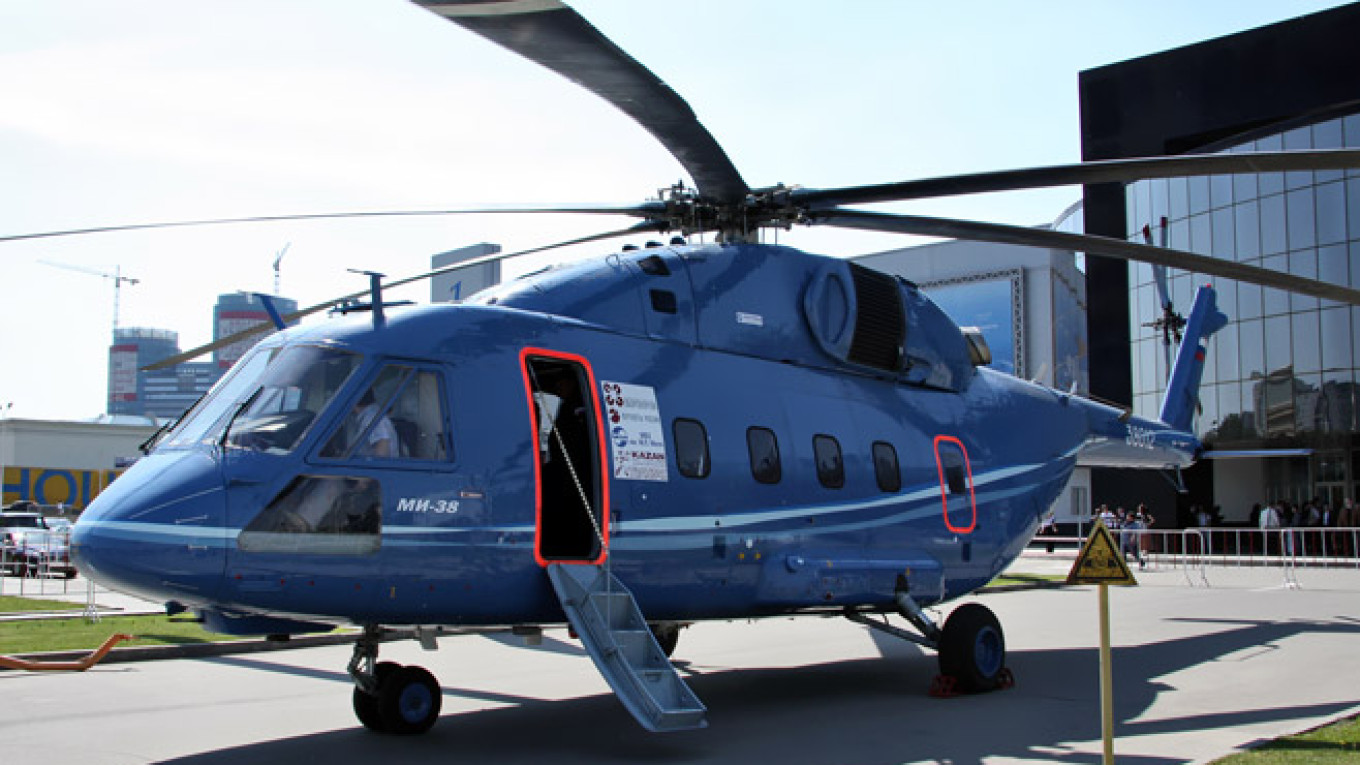Special report for MT
Russia's already world-class helicopter industry will see a 7.5 billion ruble ($213 million) injection of funds to develop a high-speed helicopter and bump up Russia's production capacity, Deputy Industry and Trade Minister Yury Slyusar announced at a news conference Tuesday.
A 7.5 billion ruble co-financing agreement between the government and state-owned Russian Helicopters, Russia's second-largest defense contractor behind Almaz-Antei, aims to produce a new high-speed helicopter by 2020 and guarantee Russia's place at the cutting edge of the industry.
Russian Helicopters, which had a 14 percent share of the global helicopter market and revenue of 60 billion rubles ($1.7 billion) in 2012, has made similar co-financing agreements with the government in the past, resulting in the development of Ka-62 transport and Mi-38 heavy lift helicopter.
"High-speed helicopters are the future," said Ruslan Puchov, head of the Moscow-based defense think tank Center for Analysis of Strategies and Technologies. Experimental prototypes of high-speed helicopters have reached speeds of more than 400 kilometers per hour, while current military helicopters travel at about 300 kilometers per hour.
To guarantee the success of the high-speed helicopter program, Slyusar promised state investment to expand the scientific and technological base supporting Russia's helicopter industry.
This new infrastructure will fill out existing helicopter production facilities near Rostov-on-Don in southern Russia, which is likely to be where the high-speed chopper will eventually start rolling off the production line.
The Rostov facility produces military helicopters, such as the Mi-26 heavy lifter and attack helicopters such as the Mi-24 and 25, as well as the Mi-28 "night-hunter," Russia's answer to the U.S.-made Apache.
Slyusar said that Rostov would also serve also as a repair center for Russian helicopters and a training center for pilots and technical staff.
The helicopter industry is one of the country's strongest high-technology sectors, enjoying a prominent position on the global market in both civilian and military applications. But it is also a globally integrated industry with certain dependencies on foreign components.
"The major dependence is on engines made in Ukraine," Pukhov said. Russia took steps to ease this dependence after the Orange Revolution in 2004, when popular protests in Ukraine's capital, Kiev, against a rigged presidential election forced the Russian sponsored candidate, Victor Yanukovych, to surrender power. But Russia still produces only about 100 helicopter engines in St. Petersburg a year — far short of the 350 to 400 engines needed by producers.
This is no problem for the Air Force and related ministries — domestic engine production can cover their requirements, Pukhov said. But he added that supply disruptions from Ukraine will potentially damage "all civilian buyers of Russian helicopters, and especially overseas customers like India, China, and the U.S., which purchased Mi-17 helicopters for the Afghan Defense Ministry."
Contact the author at bizreporter@imedia.ru
A Message from The Moscow Times:
Dear readers,
We are facing unprecedented challenges. Russia's Prosecutor General's Office has designated The Moscow Times as an "undesirable" organization, criminalizing our work and putting our staff at risk of prosecution. This follows our earlier unjust labeling as a "foreign agent."
These actions are direct attempts to silence independent journalism in Russia. The authorities claim our work "discredits the decisions of the Russian leadership." We see things differently: we strive to provide accurate, unbiased reporting on Russia.
We, the journalists of The Moscow Times, refuse to be silenced. But to continue our work, we need your help.
Your support, no matter how small, makes a world of difference. If you can, please support us monthly starting from just $2. It's quick to set up, and every contribution makes a significant impact.
By supporting The Moscow Times, you're defending open, independent journalism in the face of repression. Thank you for standing with us.
Remind me later.


